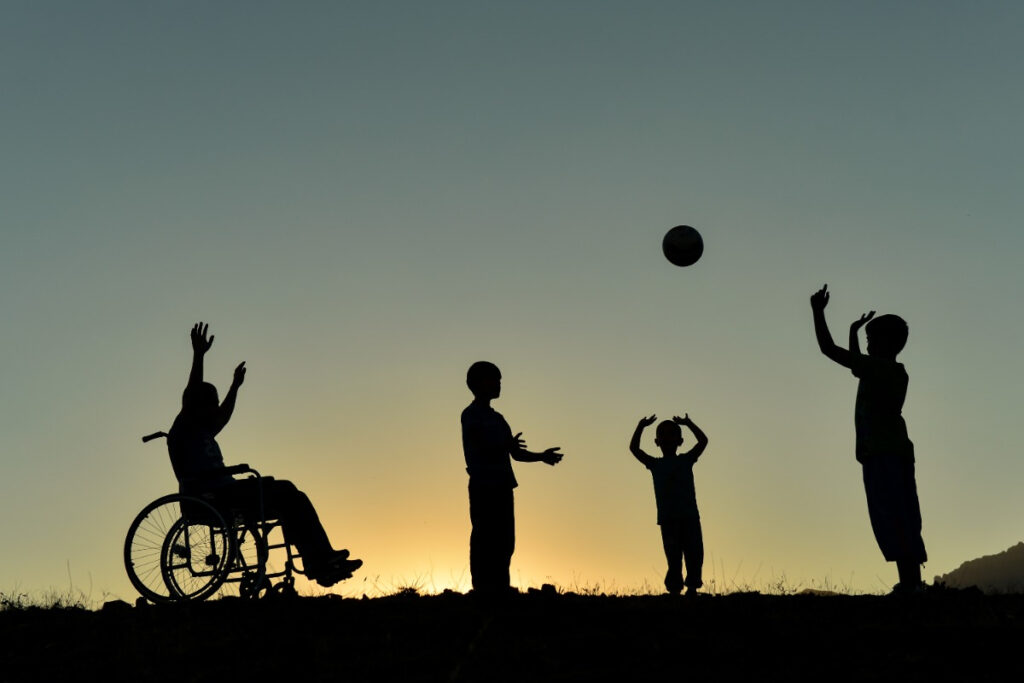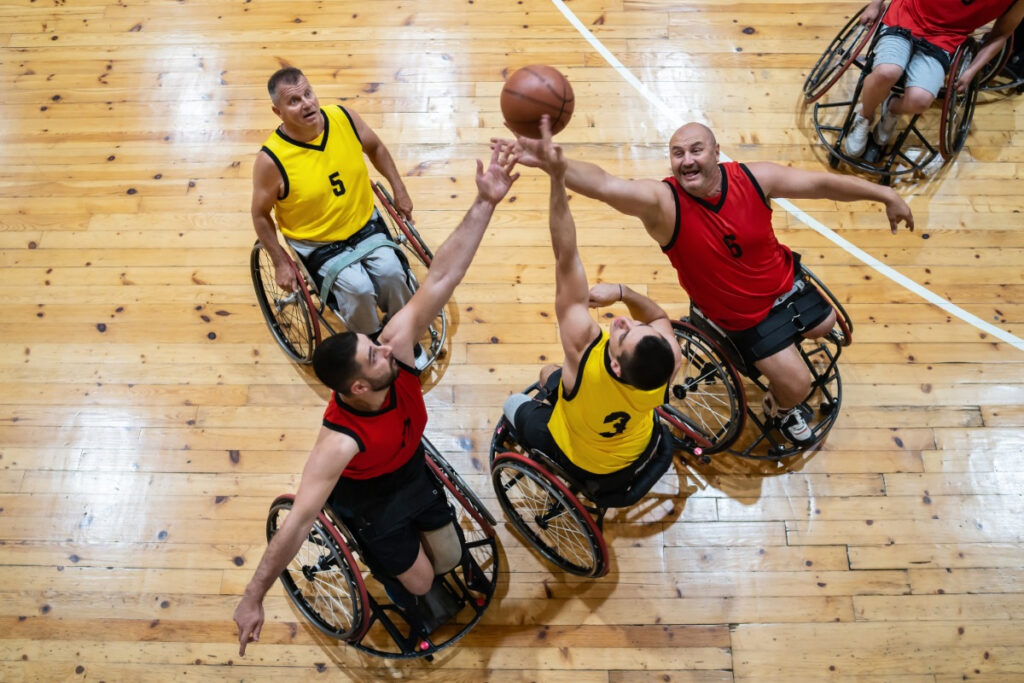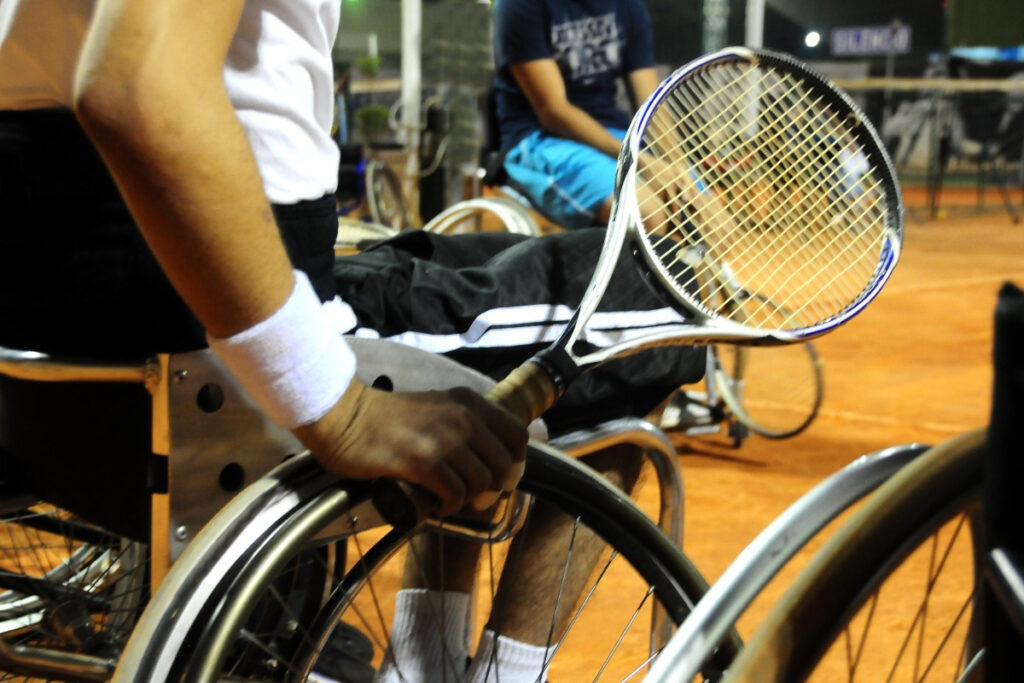Sports are a fantastic way to express our drive to compete and excel. Whether we play casually, recreationally as a hobby, or professionally, inclusive sports ensure there’s a place for everyone.
People with disabilities can be just as involved and passionate about sports. The Paralympics are a powerful example of this, showcasing the talent of disabled athletes on a global stage.
With growing support for inclusive sports, more people are getting to experience the joy and excitement that sports bring.
By breaking down barriers and creating welcoming spaces, we can challenge stereotypes and create new opportunities for persons with disabilities to thrive, grow, and define their athletic potential.
Why Inclusive Sports is a Win for Everyone
There are many reasons why inclusivity in sports benefits everyone and why persons with disabilities are encouraged to participate.
Here are some compelling factors:
1. Sports Promote Physical and Mental Well-being
Getting regular exercise through sports is a great way to build muscle strength, improve flexibility, and keep your heart healthy.
For people with physical disabilities, this can also mean better fitness, greater mobility, and a lower risk of conditions like obesity, diabetes, and heart disease.
Plus, playing sports does wonders for your mind—it helps you stay sharp, reduces stress, and boosts your mood. And those mental health benefits are something everyone can enjoy, no matter their abilities.
2. Abilities Shine Through Inclusive Sports
A physical limitation does not define what someone is capable of. With inclusive sports and the right accommodations, people with disabilities can excel in sports just like anyone else, building skills, confidence, and independence along the way.

Learn how RYTHM Foundation is helping differently-abled children in Ghana realise their potential through sports in the video below:
3. Inclusion and Diversity in Sports Benefit Everyone
Inclusive sports teams bring people of all abilities together to collaborate, work toward shared goals, and form meaningful friendships. They create a sense of belonging and build a strong community. When teams and organisations prioritise inclusion, they help promote understanding, empathy, and acceptance.
4. Sports Increase Self-esteem, Confidence, and Purpose
Playing sports gives everyone a sense of accomplishment and a boost in self-esteem. It’s an excellent way for people to feel included and make new connections.
For many people with disabilities, sports also offer a meaningful way to stay active, healthy, and engaged, bringing purpose and motivation to their everyday lives.
5. Adaptive Sports Expand Possibilities
Adaptive sports allow persons with disabilities to dive into various activities. Whether it’s wheelchair basketball or archery, adaptive games make thoughtful adjustments to ensure everyone feels included and welcome.

6. Inclusive Sports Spark Inspiration and Role Modeling
Athletes with disabilities show incredible excellence and determination, highlighting the diverse talents that make sports special. The Paralympics, for example, showcase how their achievements prove that anyone can aim for athletic greatness.
By participating in inclusive sports, disabled athletes help break down stereotypes and inspire others to see their athletic potential.
7. Sports Improve Problem-solving Skills
People with disabilities develop strong problem-solving abilities through sports. By navigating unique challenges, they learn to think on their feet, develop strategies, and find creative solutions. These skills go far beyond the game, helping them succeed in many aspects of life.
8. Diversity in Sports Encourages Creativity
Sports environments that embrace inclusivity gain so much from the diverse perspectives and experiences of athletes of all abilities.
This diversity encourages creative problem-solving, adaptability, and fresh thinking, making the experience better for everyone involved.

Be Proactive in Promoting Inclusive Sports
Athletes with disabilities, or anyone with a disability who wants to play sports, should have the same chance to participate alongside their non-disabled peers.
However, there are still common barriers that can make participating challenging for disabled people, like lack of access, high costs, and mobility issues. To truly make sports inclusive, we need to break down these barriers by providing better access to inclusive programs, adaptive equipment, and supportive environments that encourage them to follow their passion for sports, build their skills, and compete at any level they choose.
At RYTHM Foundation, we’re all about inclusivity and empowerment. We support inclusive sports through programmes that create opportunities for people with disabilities to enjoy sports.





